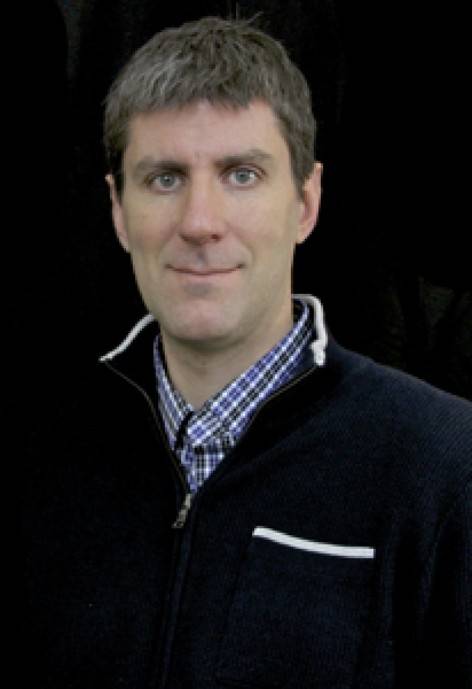John Oakey
Department of Chemical and Biomedical Engineering | INBRE | Molecular and Cellular Life Sciences Program | Material Science and Engineering Program | Biomedical Sciences
Professor, Graduate Coordinator

Our research draws upon principles of fluid dynamics, colloidal science and materials science to study the dynamics of biological systems (fluids, cells, tissues) under flow, upon surfaces and within complex three dimensional geometries. Insights that we gain are applied to the rational design and fabrication of diagnostic, prognostic, and therapeutic platforms. A central theme to this research is an exploitation of microfabrication and microfluidics as a route to new device platforms and compositions of materials. Specific projects of interest to our group include:
Heterogeneous biomaterials: Polymer-based hydrogels have exhibited tremendous promise as synthetic tissue scaffolds, allowing surrogate tissues to be implanted in vivo for the immediate restoration of function and longer-term evolution into native tissue. A well-recognized disfunction of polymer hydrogel-based cell carriers is the inability to separate the gels' mechanical and physical transport properties during scaffold degradation. This leads to materials that are suboptimal in one aspect or another, often catastrophically so, during a critical period of their evolution. We are developing self-assembled particulate tissue scaffolds, control temporal and spatial evolution during scaffold reorganization and explore scaffold structure-property relationships.
Inertial microfluidics: Microscale fabrication lends precise control over physical phenomena and fluid dynamics at small length scales. An excellent illustration of this is inertial focusing, a phenomena by which small particles in flowing fluids are laterally re-positioned by lift forces occurring between particle and channel surfaces. This behavior depends strongly on particle size, making it an ideal approach to membrane-free filtration, particle enrichment, depletion and size-selective sorting. We are working to elucidate the physical principles of inertial focusing in order to better approach device design and construction. In biomedicine, these principles may be applied to develop new diagnosis, prognosis monitoring and disease progression monitoring platforms.
Multi-temporal Analysis by Flow Cytometry: Microfluidics and inertial microfluidics, in particular, have and will continue to be applied in emergying miniaturized flow cytometry platforms for applications ranging from fundamental biology to high-throughput screening and medical diagnistics. Modern flow cytometry platforms are high throughput and very sensitive but consume copious sample volume and are not particularly flexible or reconfigurable. We seek to develop new microfluidic tools for high-throughput, closed-loop flow cytometers that will allow particle tracking for successive screening and multi-temporal data acquisition. These platforms will have applications in biotechnology, medical diagnostics and even biofuels production.
Education
- Postdoctoral Fellow, Center for Engineering in Medicine, Massachusetts General Hospital and Harvard Medical School, 2007-2010.
- Ph.D. Chemical Engineering, Colorado School of Mines, 2003
- M.S. Chemical Engineering, Colorado School of Mines, 1999
- B.S. Chemical Engineering, Penn State University, 1997
Areas of Research Activity
- Microscale Transport Phenomena, Microfluidic Processes and Applications (Flow Cytometry, Diagnostic, Prognosticc and Predictive Therapeutic Devices)
- Novel Material Synthesis and Self-Assembly (Colloidal Dynamics, Soft Matter, Composites and Biomimetic Structures)
- Tissue Engineering and Regenerative Medicine (Structural Tissue Development and Regeneration)
Select Publications
- Particle Focusing in Staged Inertial Microfluidic Devices for Flow Cytometry, Oakey, J., Applegate, R., Arellano, E., Graves, S., DiCarlo, D., Toner, M., Analytical Chemistry, 82, 3862-3867, 2010.
- Stop-Flow Lithography for the Production of Shape-Evolving Auto-erodable Microgel Particles, Hwang, D.K., Oakey, J., Toner, M., Arthur, J., Anseth, K., Lee, S., Zeiger, A., Van Vliet, K.J., Doyle, P.S., J. American Chemical Society, 131, 4499-4504, 2009.
- Microfluidic Sorting System Based on Optical Waveguide Integration and Diode Laser Bar Trapping, Applegate, R.W., Jr., Squier, J., Vestad, T., Oakey, J., Marr, D.W.M., Bado, P., Dugan, M.A., Said, A., Lab on a Chip, 6, 422-426, 2006.
- Microfluidic Control Using Colloidal Devices, Terray, A., Oakey, J.S., Marr, D.W.M., Science, 296, 1841-1844, 2002.

